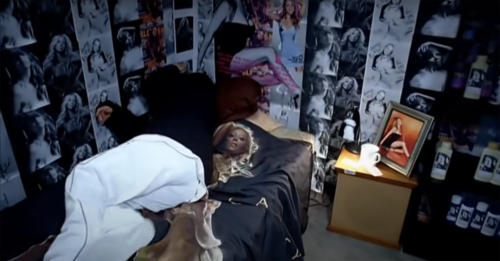“I refuse to acknowledge time.” With these outlandish words, Mariah Carey begins her memoir, The Meaning of Mariah Carey, published in 2020. “It is a waste of time to be fixated on time,” declares the elusive chanteuse. “Life has made me find my own way to be in this world. Why ruin the journey by watching the clock and the ticking away of years?” Instead of counting the minutes and years, Mariah wants to live life “moment to moment.” Indeed, moments are one of her favorite things. See “Mariah Carey Needs a Moment” on YouTube; it’s a much-loved ninety-second supercut from her 2010–11 infomercials on the Home Shopping Network, in which she sells fashion, perfume, and jewelry items while enthusing about having a “diamond moment,” a “retro moment,” a “bandana moment,” a “genius moment,” a “dual moment,” a “fragrant moment,” a “skin-tight moment,” a “transitional summer moment,” a “full-on evening moment,” a “fun cute remix moment,” and so on.
Mariah’s espousal of moments has inspired many, including Adam Farah-Saad (aka free.yard), a London-born and -based artist and dedicated Lamb whose work is often infused with MC’s language, lyrics, and iconography. (“Lambs” are what Mariah’s most devoted fans call themselves; collectively we are the “Lambily.”) Working across video, installation, and performance formats, Farah-Saad makes art with various things including poppers, friends, obsolete technologies like iPods and CDs, microdosing, wind chimes, personal memories and heartbreaks, fisheye lenses, cruising, lipsynching, and gourmet condiments. They have said that Mariah inspires them as an artist, “in terms of wanting to be really sincere and poetic in what I do and kind of not being afraid to even go a bit overboard with that.”3 Their solo exhibition at Camden Art Centre in 2021 was framed as a presentation of “peak momentations” from their life. The term “momentation,” they explain, refers to “a pronounced dwelling on the ephemeral—influenced by Mariah Carey’s queer disidentificatory theorisations of THE MOMENT.”
The word “moment” comes from the Latin “momentum,” meaning “movement, motion, alteration, change.” It’s a shifty word: “in a moment” means very soon, to be “of the moment” is to be very current, to “live for the moment” is to act without concern for the future or the past. Moments are often temporal intensities that stand apart from the time that surrounds them; when we say “I need a moment” or “I’m having a moment,” it’s about puncturing the flow of things by carving out a pocket of time outside of regulated time. Moments are very different from minutes; they are decidedly transient, unquantifiable, indivisible, and non-accumulative. They’re brief but capacious; you can’t section them out or add them up in any normative way. For Mariah, living a life of moments means living “Christmas to Christmas, celebration to celebration, festive moment to festive moment,” while simply ignoring the rest, and always refusing to acknowledge the banality and brutality of standardized, accumulative, linear time. As she writes, “Often time can be bleak, dahling, so why choose to live in it?”
LINK: READ THE FULL ESSAY AT E-FLUX
Update 27 March 2024 (Mimi’s anniversary): A French translation of the essay by Emmanuel Pierre published at The Master’s Clock.
